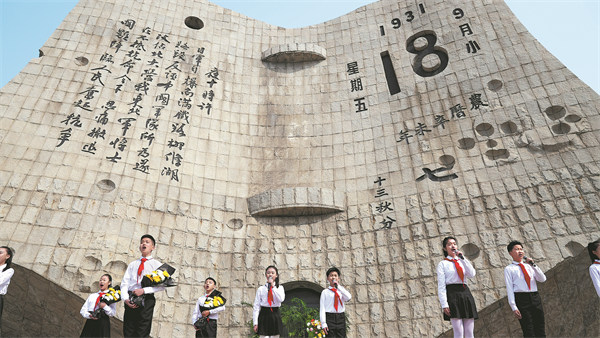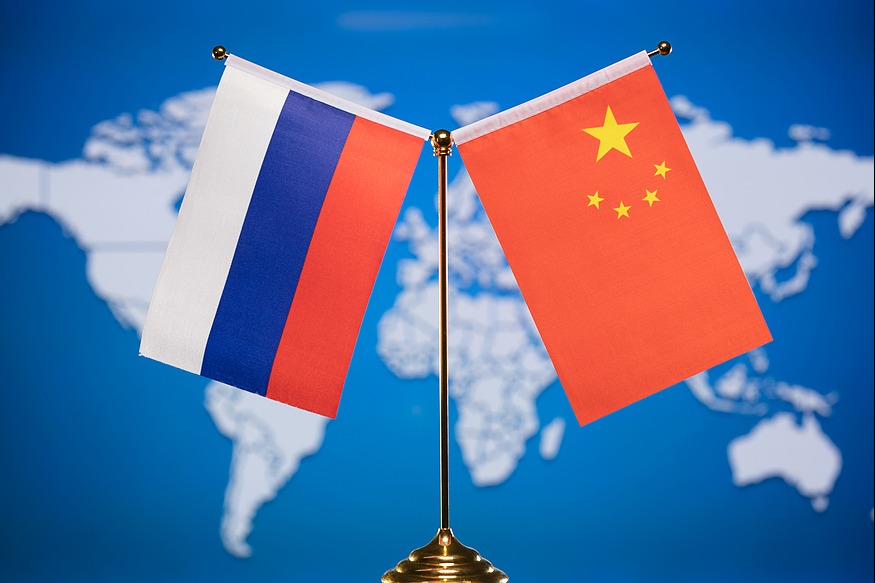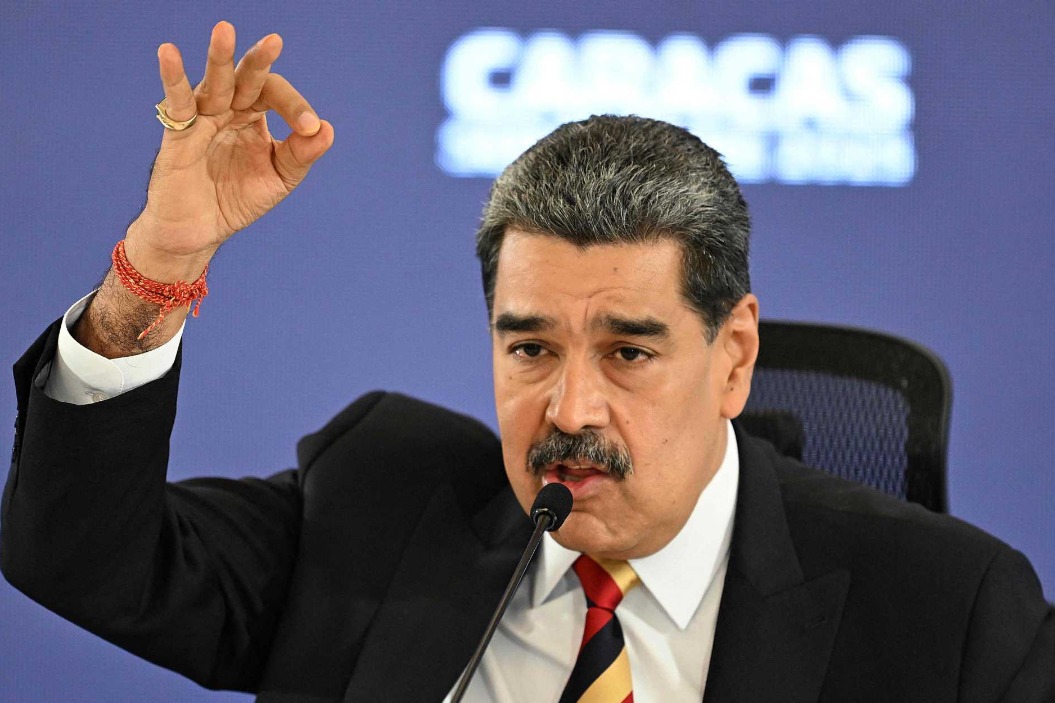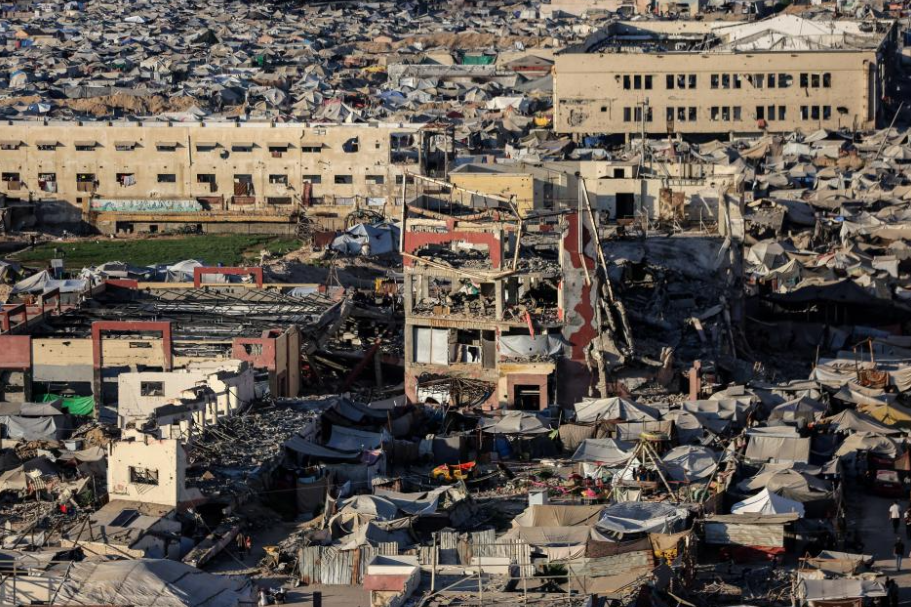Indispensable role of Chinese people in WWII should be treasured


This year marks the 80th anniversary of the victory in the Chinese People's War of Resistance Against Japanese Aggression (1931-45) and the World Anti-Fascist War. It's noteworthy that the remarkable valor shown by the Chinese forces, the Communist Party of China and the Chinese people was critical in preserving human civilization and upholding global peace during an extreme historical test.
Eight decades later, the lessons of this hard-won war remain significantly relevant. Amid rising unilateralism, global instability and naked attempts to distort historical truths, it becomes integral to remember those who were in the forefront in this war.
History speaks for itself, with China formally entering the regional war of resistance against unprovoked Japanese aggression following the Mukden Incident on Sept 18, 1931. It was the Chinese People's War of Resistance Against Japanese Aggression that fired the first shot in the World Anti-Fascist War, opening the main theater in the Asia-Pacific of the World Anti-Fascist War and thereby unveiling a defining chapter in the global struggle against fascism.
Mainstream Western historians confine the starting point of World War II to the German invasion of Poland in 1939, overlooking Japan's invasion of Northeast China in 1931. This Western and European-centric account unfortunately reveals significant gaps in Western historians' and chroniclers' conception about the war against fascism, as they ignore that the origin of WWII was not limited to Europe but spanned continents.
The role of China as the primary Eastern theater during WWII and as the decisive force in defeating Japanese fascism is largely ignored and downplayed across the Western narrative, which does not denote that the Chinese struggle against Japanese aggression proved to be the decisive checkmate in the anti-fascist war.
The Chinese military with aid from civilians collectively eliminated over 70 percent of Japanese soldiers in WWII, with 1.28 million troops surrendering to China after defeat.
The path to a fascism-free world was fraught with hardships, and China paid a heavy price by making profound sacrifices in the form of more than 35 million military and civilian casualties, highlighting the cost of defending justice and upholding international peace.
The economic losses itself were unprecedented, with experts highlighting that the direct losses exceeded $100 billion and indirect losses reached $500 billion, calculated in 1937 currency.
Evidently, the Chinese struggle was not limited to the region, as China actively supported countries and regions in their anti-fascist struggles during the war, becoming the beacon of the world anti-fascist united front.
Not only did it send troops to Allied forces to combat the Japanese threat in Myanmar, but it acted as a strategic base for Allied forces in the Asia-Pacific region and aided the struggle by providing strategic materials such as tin and tungsten, as well as military intelligence to Allied forces, thereby contributing to their manpower, material resources and financial resources.
Obviously, the victory in the Chinese People's War of Resistance Against Japanese Aggression was a great triumph achieved by the Chinese people fighting side by side with anti-fascist allies and the peoples of various countries. In this regard, China and the Soviet Union's correct historical stance cannot be downplayed, as these nations made pivotal contributions to the victory in the global fight against fascism.
The deliberate attempt to pollute history and polish it with a Western geopolitical interpretation cannot erase the historically critical role played by the two nations.
Thanks to China's great spirit demonstrated in the war against Japanese aggression, its inspiring resistance, especially compared with the surrender of some other nations to fascism, was also the most persistent of any nation in WWII, a persistence that continued until Japan's surrender in 1945, underpinning the immense sacrifices and sustained efforts of the Chinese people to secure a fascism-free world.
Furthermore, China's commitment to a thriving postwar world is largely ignored. China, along with the Soviet Union, played an instrumental role in the formation of the UN and key international economic organizations, such as the International Bank for Reconstruction and Development, currently known as the World Bank, and the International Monetary Fund. It also aided in the drafting of the General Agreement on Tariffs and Trade.
This historical lesson underscores that the Chinese People's War of Resistance Against Japanese Aggression was pivotal in protecting the world from succumbing to fascism.
China, along with the Soviet Union, and the United States led an integral resistance against fascist nations. The role of these nations may have been buried in Western power-centric history books, but it has been etched in history itself and cannot be removed.
The Chinese nation will always be remembered as the savior of international peace and the beacon bearer of humanity's fight for justice.
Undoubtedly, the indispensable role that China played in establishing the world anti-fascist alliance during WWII and reconstructing the post-war international order should always be treasured, remembered and celebrated.
The author is executive director of The Center for Knowledge and Public Policy based in Pakistan.
The views do not necessarily reflect those of China Daily.

































